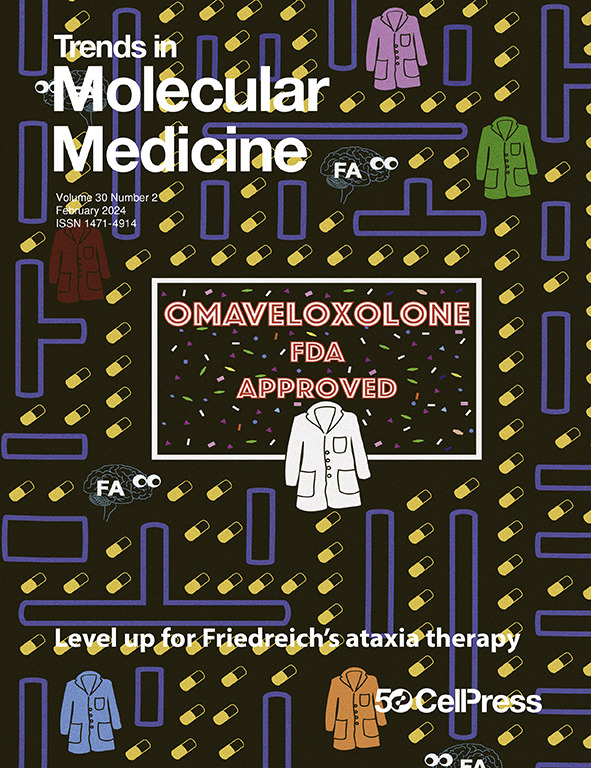结节性硬化症复合体中与大脑相关的两性异形:一个被忽视的问题。
IF 13.8
1区 医学
Q1 BIOCHEMISTRY & MOLECULAR BIOLOGY
Trends in molecular medicine
Pub Date : 2025-10-01
Epub Date: 2025-01-21
DOI:10.1016/j.molmed.2025.01.002
引用次数: 0
摘要
生理性别强烈影响结节性硬化症(TSC)的症状,如癫痫和自闭症。然而,驱动这种影响的机制在很大程度上仍然未知。在这里,我们讨论了脑突触和神经网络的性别特异性变化如何驱动这些差异,为开发针对TSC的靶向治疗提供了至关重要的见解。本文章由计算机程序翻译,如有差异,请以英文原文为准。
Brain-related sexual dimorphism in tuberous sclerosis complex: an overlooked matter.
Biological sex strongly impacts tuberous sclerosis complex (TSC) symptoms like epilepsy and autism. However, the mechanisms driving this influence remain largely unknown. Here, we discuss how sex-specific changes in brain synapses and neural networks may drive these differences, offering insights that could be crucial for developing targeted therapies for TSC.
求助全文
通过发布文献求助,成功后即可免费获取论文全文。
去求助
来源期刊

Trends in molecular medicine
医学-生化与分子生物学
CiteScore
24.60
自引率
0.00%
发文量
142
审稿时长
6-12 weeks
期刊介绍:
Trends in Molecular Medicine (TMM) aims to offer concise and contextualized perspectives on the latest research advancing biomedical science toward better diagnosis, treatment, and prevention of human diseases. It focuses on research at the intersection of basic biology and clinical research, covering new concepts in human biology and pathology with clear implications for diagnostics and therapy. TMM reviews bridge the gap between bench and bedside, discussing research from preclinical studies to patient-enrolled trials. The major themes include disease mechanisms, tools and technologies, diagnostics, and therapeutics, with a preference for articles relevant to multiple themes. TMM serves as a platform for discussion, pushing traditional boundaries and fostering collaboration between scientists and clinicians. The journal seeks to publish provocative and authoritative articles that are also accessible to a broad audience, inspiring new directions in molecular medicine to enhance human health.
 求助内容:
求助内容: 应助结果提醒方式:
应助结果提醒方式:


